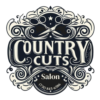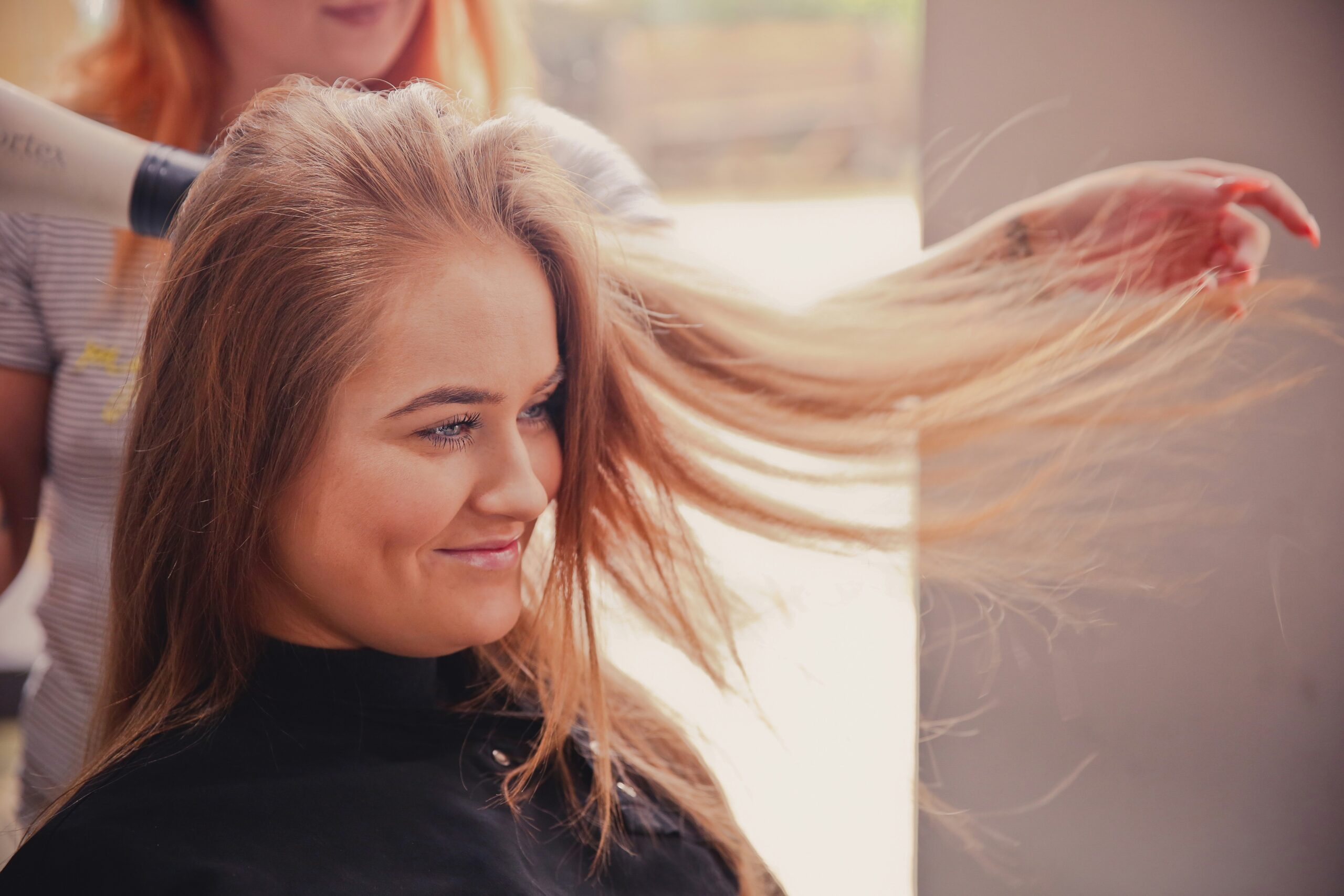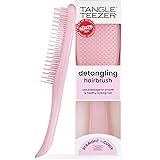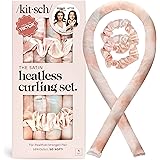Understanding Hair Loss
Hair loss, medically referred to as alopecia, is a condition that affects millions around the globe, manifesting in various forms and impacting diverse demographics. One of the primary reasons individuals experience hair loss relates to genetics. Hereditary hair loss tends to follow specific patterns, such as male-pattern baldness or female-pattern baldness, and is primarily influenced by hormonal changes. However, there are other conditions which can contribute to hair loss, including stress, nutritional deficiencies, hormonal imbalance, and environmental factors.
The biological processes behind hair growth are intricate. Hair follicles cycle through phases of growth (anagen), rest (telogen), and shedding (catagen). During the anagen phase, which can last several years, hair actively grows; the telogen phase, lasting around two to three months, is a resting period before hair is ultimately shed. An imbalance in these cycle phases can lead to excessive hair loss. For instance, when a significant number of hair follicles enter the telogen phase simultaneously, often triggered by stress or significant life events, individuals may experience temporary hair thinning known as telogen effluvium.
Demographically, hair loss does not discriminate; it affects individuals of all ages and backgrounds. While it is more common in older adults, younger individuals can also be affected due to various reasons. Furthermore, men and women often experience hair loss differently, with men generally showing receding hairlines or bald spots, while women may notice thinning strands across the crown of their heads. Understanding the underlying causes and types of hair loss is essential for individuals seeking effective prevention methods or treatments, ensuring they are well-informed when exploring options for maintaining healthy hair.
Building a Healthy Diet for Hair
Maintaining a healthy diet is paramount for promoting hair health and preventing hair loss. Various nutrients play vital roles in ensuring strong, resilient hair. Key vitamins such as Biotin, Vitamin D, and Vitamin E contribute significantly to hair growth. Biotin, found in eggs, nuts, and leafy greens, is essential for keratin production, which forms the structural component of hair. A deficiency in this vitamin can lead to thinning hair and lackluster strands.
Vitamin D, which can be synthesized through exposure to sunlight, helps create new hair follicles. Foods like fatty fish, fortified dairy, and certain mushrooms can boost Vitamin D levels, supporting healthy hair development. Similarly, Vitamin E, abundant in nuts and seeds, promotes blood circulation in the scalp, ensuring that hair follicles receive the necessary nutrients for growth and repair.
Moreover, minerals such as zinc and iron are critical components of a hair-friendly diet. Zinc, present in shellfish, legumes, and whole grains, aids in tissue growth and repair, while iron, found in red meat, spinach, and lentils, carries oxygen to hair follicles, promoting their vitality and strength. Low iron levels can particularly contribute to hair shedding, making it essential to include iron-rich foods in one’s diet.
Additionally, proteins form the building blocks of hair and should not be neglected in a hair-friendly diet. Including high-quality protein sources such as lean meats, fish, eggs, and plant-based options like beans and quinoa can enhance hair density and resilience. Healthy fats, particularly omega-3 fatty acids found in oily fish and walnuts, also play a role in maintaining the scalp’s health and preventing dryness.
Incorporating a balanced diet rich in these vitamins, minerals, and proteins is crucial for fostering healthy hair and preventing loss. By prioritizing nutrition, individuals can support not only the appearance but also the overall health of their hair.
Proper Hair Care Routine
Establishing an effective hair care routine is essential for minimizing damage and promoting healthy hair. One of the first considerations in this process is the frequency of washing hair. For most individuals, washing hair two to three times a week strikes an optimal balance between cleanliness and maintaining natural oils. However, factors such as hair type, lifestyle, and environmental conditions should dictate this frequency. For example, individuals with oily hair may need to wash more frequently, while those with very dry or curly hair might benefit from washing less often.
Choosing the right hair products is equally crucial in a proper hair care regimen. Selecting shampoos and conditioners free from harsh chemicals such as sulfates and parabens can significantly reduce hair damage. Instead, consider products that include natural ingredients like aloe vera, coconut oil, or shea butter, as these can provide moisture and nourishment without stripping the hair’s natural defenses. Additionally, using a deep conditioning mask or treatment once a week can further enhance hair health, helping to restore moisture and strength.
When it comes to drying and styling hair, employing gentle techniques is vital. After washing, avoid rubbing hair vigorously with a towel; instead, gently squeeze out excess water and consider using a microfiber towel or an old t-shirt to minimize friction. When styling, opt for heat-free methods when possible, such as air-drying or braiding damp hair for waves. If heat styling is necessary, utilizing a heat protectant spray can help shield strands from potential damage. Therefore, an informed and balanced hair care routine can significantly reduce hair loss while encouraging overall hair health.
Hydration and Its Impact on Hair Health
Proper hydration plays a crucial role in maintaining overall health, including the health of hair. Water is essential not only for bodily functions but also for the nourishment of hair follicles and promoting hair growth. When the body is adequately hydrated, it can effectively transport nutrients to hair cells, which is vital for growth and strength. Dehydration, on the other hand, can lead to brittle hair and excessive breakage due to a reduction in the moisture available to the hair strands.
Hydrated hair is generally healthier and more resilient. When hair lacks moisture, it becomes dry, leading to frizz, split ends, and an overall dull appearance. Regular water intake helps maintain the elasticity of hair, making it less prone to damage. Moreover, drinking sufficient water assists in the absorption of essential vitamins and minerals that promote hair health. For instance, B vitamins, known for their role in hair growth, require a hydrated environment to function properly within the body.
In addition to drinking water, hydration can be enhanced through proper dietary choices. Foods rich in water content—such as fruits and vegetables—can contribute to overall fluid intake and improve skin and hair benefits. Incorporating items like cucumbers, oranges, and leafy greens into one’s diet can help ensure that the body remains hydrated, thereby positively affecting hair health.
Lastly, it is noteworthy that external hydration measures, such as using leave-in conditioners or hair masks, can also contribute to maintaining moisture levels in hair. These products can provide a barrier against environmental factors that lead to moisture loss, thus promoting healthier hair. Therefore, understanding the significance of hydration is vital for those looking to maintain and improve their hair quality.
The Role of Scalp Care
Effective scalp care is a crucial component in the prevention of hair loss. Many individuals overlook the importance of maintaining a healthy scalp, which can lead to various conditions that contribute to hair thinning and shedding. A clean and well-nourished scalp promotes optimal hair growth, as it creates a conducive environment for hair follicles to thrive.
One of the primary aspects of scalp care is cleanliness. Accumulation of dirt, oil, and product buildup can clog hair follicles, adversely affecting hair growth. Regular washing with a suitable shampoo helps to keep the scalp clean and free from these impurities. It is essential to choose a shampoo that matches one’s hair type and addresses any specific scalp concerns, such as dandruff or an oily scalp. Incorporating a gentle exfoliation routine can further enhance scalp health by removing dead skin cells and promoting circulation.
In addition to cleanliness, maintaining scalp hydration is vital. A dry scalp can lead to irritation, flakiness, and inflammation, which may contribute to hair loss. Using moisturizing treatments or essential oils can help to maintain healthy hydration levels. Ingredients like tea tree oil and argan oil are particularly beneficial for soothing and nourishing the scalp.
Scalp massages also play a significant role in hair loss prevention. Massaging the scalp promotes blood circulation, delivering essential nutrients to hair follicles, thereby supporting their growth. This simple practice can be incorporated into a regular hair care routine and can also offer relaxation benefits, reducing stress, which is another factor that can contribute to hair loss.
Ultimately, effective scalp care is fundamental for preventing hair loss. By focusing on cleanliness, hydration, and circulation, individuals can create an environment that supports healthy hair growth, making scalp care an essential part of any hair loss prevention strategy.
Avoiding Stress for Healthy Hair
Stress is a significant factor that can contribute to hair loss, impacting individuals in various ways. When the body experiences stress, it may enter a state of heightened alertness, leading to hormonal imbalances that can negatively affect hair follicles. This reaction can result in a condition known as telogen effluvium, where hair prematurely enters the shedding phase, leading to noticeable thinning. Therefore, managing stress effectively is crucial in preserving hair health.
Incorporating mindfulness practices into your daily routine can be beneficial. Mindfulness encourages individuals to focus on the present moment, minimizing anxiety and promoting relaxation. Techniques such as meditation and deep-breathing exercises can help center the mind and reduce overall stress levels. Setting aside a few minutes each day for mindfulness can create a calming effect, which is essential for both mental and hair health.
Yoga is another excellent method to alleviate stress while simultaneously promoting physical well-being. Engaging in regular yoga sessions can enhance flexibility, improve circulation, and stimulate the scalp, all of which contribute positively to hair growth. Furthermore, various yoga poses focus on breathing techniques, which can further decrease tension and anxiety. A simple yoga routine, practiced several times a week, can provide significant stress-relieving benefits.
Additionally, integrating breathing exercises into your daily activities can be an effective stress management tool. Simple techniques, such as inhaling deeply and exhaling slowly, can reduce cortisol levels—the hormone associated with stress. Practicing these techniques can enhance your overall sense of well-being and protect your hair from the adverse effects of stress.
By incorporating these stress management techniques into your lifestyle, you promote emotional resilience, leading to healthier hair and overall well-being. Prioritizing stress reduction is a fundamental step towards preventing hair loss and maintaining a vibrant mane.
Choosing the Right Hair Products
Selecting the appropriate hair products is crucial for maintaining healthy hair and preventing hair loss. It begins with understanding your unique hair type, which can be categorized as straight, wavy, curly, or coily. Each type requires different care and product formulations. For instance, straight hair tends to be oilier, often needing lighter products that avoid added weight. In contrast, curly and coily hair often benefits from heavier moisturizers and oils that provide essential hydration and definition.
Additionally, it is vital to scrutinize the ingredient labels of hair products. Many conventional hair care items contain harmful chemicals such as sulfates, parabens, and silicones. Sulfates can strip natural oils, leading to dryness and potential damage, while parabens may disrupt hormonal balance and affect overall hair health. Opting for products labeled as “sulfate-free” and “paraben-free” is advisable for those looking to safeguard their tresses.
Natural alternatives have gained popularity for their gentle formulation and effectiveness. Ingredients like aloe vera, coconut oil, and argan oil are excellent choices as they nourish and restore hair health without harmful side effects. When possible, research brands that prioritize clean beauty and sustainable practices, ensuring that their products are both environmentally conscious and beneficial for your hair.
In addition to choosing the right products, practicing a consistent hair care routine is equally important. Regular cleansing and conditioning, as well as targeted treatments, can enhance the effectiveness of the products used. Consider incorporating a clarifying shampoo occasionally to remove product buildup, followed by a deep-conditioning treatment to replenish moisture.
By choosing the right hair products tailored to your hair type and prioritizing natural ingredients, you can significantly mitigate the risks associated with hair loss and promote healthier hair growth.
Limiting Heat and Chemical Treatments
Excessive heat styling and the use of chemical treatments have become common practices in modern hair care routines. However, these methods can lead to considerable damage, causing hair loss and compromising the overall health of your locks. When hair is exposed to high temperatures from tools such as hair dryers, curling irons, and flat irons, the moisture content can significantly diminish, leading to brittleness and breakage. Similarly, chemical treatments, including hair dyes, relaxers, and perms, can strip the hair of its natural oils and weaken its structure, further elevating the risk of hair loss.
To effectively minimize damage caused by heat styling, consider adopting a few simple strategies. First and foremost, reduce the frequency of heat styling; try to limit the use of these tools to special occasions rather than daily use. When heat styling is necessary, it is important to apply a heat protectant product to your hair beforehand. Look for sprays or serums specifically designed to shield strands from high temperatures. Additionally, adjusting the heat setting on your styling tools to the lowest effective temperature can further protect your hair.
In terms of chemical treatments, awareness of their potential harm is crucial. Opt for gentler alternatives whenever possible, such as semi-permanent dyes or natural hair colorants like henna, which can minimize damage. Furthermore, consider utilizing clip-in extensions for temporary styling changes, allowing you to enjoy a variety of looks without inflicting damage on your natural hair. Regular conditioning treatments can also help restore moisture, strengthen hair, and create a healthier environment for growth.
By consciously limiting the use of heat and chemical treatments, one can foster a healthier hair care routine and mitigate hair loss risk, promoting long-term hair vitality.
The Benefits of Regular Trimming
Regular hair trimming plays a crucial role in maintaining healthy hair and preventing hair loss. Although it may seem counterintuitive to cut hair when one is concerned about its length, frequent trims help ensure that hair remains in optimal condition. One of the most significant benefits of regular trimming is the prevention of split ends. Split ends occur when the protective outer layer of the hair cuticle wears away, leading to fraying and breakage. By trimming the ends of the hair every six to eight weeks, individuals can effectively reduce the prevalence of these damaging splits, thereby promoting healthier hair overall.
In addition to preventing split ends, regular trimming encourages healthier hair growth. When hair is regularly cut, it not only helps rid the hair of damaged ends but also stimulates the scalp and hair follicles. This stimulation can enhance circulation to the area, fostering a conducive environment for hair to grow stronger and thicker. As a result, those who incorporate a consistent trimming routine may find that their hair grows faster and appears fuller.
Moreover, regular trims facilitate the maintenance of a desired hairstyle, ensuring that it remains neat and stylish. This not only boosts the aesthetic appeal but also contributes to overall hair health. Trimming can help remove any damaged or frizzy hair, thus making the hair easier to manage and style. When hair is easier to handle, individuals are less likely to resort to damaging treatments or excessive heat styling, which can contribute to hair loss and deterioration.
Ultimately, the combination of preventing split ends, promoting healthier growth, and enhancing manageability underscores the importance of regular hair trimming. By adhering to a trimming schedule, individuals can take significant strides toward ensuring their hair remains healthy, vibrant, and resilient over time.
Using Essential Oils for Hair Health
Essential oils have gained popularity in recent years for their potential benefits in promoting hair growth and overall hair health. These concentrated plant extracts offer various properties, including antifungal, antibacterial, and anti-inflammatory effects, which can contribute to a revitalized scalp and improved hair condition. Incorporating essential oils into your hair care routine can be a natural way to support healthy hair growth and prevent excess hair loss.
To begin with, popular essential oils for hair health include rosemary, lavender, peppermint, and cedarwood. Rosemary oil is particularly well-regarded for its ability to stimulate blood circulation to the scalp, potentially promoting hair growth. Lavender oil, known for its calming properties, also provides hydration and helps reduce stress, which is essential for maintaining a healthy hair environment. Peppermint oil offers a refreshing sensation and can increase scalp circulation, while cedarwood oil helps balance oil production and reduce hair thinning.
For those interested in crafting their own hair oils, a simple recipe can be created by combining a carrier oil such as jojoba or coconut oil with essential oils. For instance, a blend of three drops of rosemary oil, three drops of lavender oil, and a tablespoon of jojoba oil creates an effective treatment. This mixture can be gently massaged into the scalp and left for at least 30 minutes before washing it out with shampoo. Regular use of this DIY hair oil can enhance hair growth and improve the overall texture of your hair.
Incorporating essential oils into your hair care routine does not have to be complicated. A few drops can be added to your regular shampoo or conditioner, ensuring that you benefit from their properties during each wash. Additionally, using essential oil-infused hair masks or serums can enhance moisture retention and provide a nourishing treatment. By understanding how to utilize essential oils for hair health, you can create a personalized regimen that aligns with your hair care goals.
Understanding Genetics and Hair Loss
Genetics play a significant role in the process of hair loss, influencing both the likelihood and the pattern of hair thinning or baldness. Hereditary factors contribute to various types of hair loss, most notably androgenetic alopecia, commonly referred to as male or female pattern baldness. This condition is predominantly driven by genetic predisposition, meaning that individuals with a family history of hair loss are at a higher risk of experiencing it themselves.
Research indicates that multiple genes are involved in hair loss, interacting with hormonal levels, especially dihydrotestosterone (DHT). DHT is derived from testosterone and has been shown to affect hair follicles, leading to their miniaturization over time. The specific genetic variations that trigger sensitivity to DHT are inherited and can vary between individuals, which is why hair loss patterns can present differently, even among relatives.
Understanding your genetic background can be pivotal in predicting potential hair loss. For instance, if both parents experienced thinning hair, their offspring may also inherit the tendency for hair loss. However, genetics do not solely dictate hair health; environmental factors, lifestyle choices, and overall health also play crucial roles. By recognizing the hereditary nature of hair loss, individuals can take proactive measures to mitigate its effects. This awareness can encourage exploring various prevention strategies, including seeking professional advice, utilizing specific hair care products, and making lifestyle adjustments.
In essence, while genetics significantly influence hair loss, they do not inherently determine one’s fate. By understanding the genetic factors at play, individuals can empower themselves to adopt preemptive strategies and maintain the health and vitality of their hair for longer durations.
The Impact of Hormones on Hair Loss
Hormones play a critical role in regulating various bodily functions, including hair growth. When there is an imbalance in hormone levels, it can lead to significant changes in hair health, often resulting in hair loss. This issue is particularly prevalent among women during major life stages, such as menopause and pregnancy. During these periods, fluctuations in hormones such as estrogen and progesterone can decrease hair growth and prompt shedding.
In menopause, the decline of estrogen can lead to thinning hair and increased hair loss. Similarly, during pregnancy, hormonal changes may initially result in thicker hair due to higher levels of hormones, but postpartum hair loss can occur as hormone levels return to their pre-pregnancy state. The sudden drop in these hormones can trigger a condition known as telogen effluvium, characterized by a significant shedding of hair.
To combat hormone-related hair loss, several natural strategies can be employed. First, maintaining a balanced diet rich in essential nutrients such as vitamins A, C, D, E, biotin, and minerals like iron and zinc is crucial. These nutrients not only support overall health but also promote healthy hair growth. Incorporating stress-reducing techniques such as meditation, yoga, or regular exercise can also prove beneficial, as stress is known to worsen hormonal imbalances.
Additionally, herbal supplements like saw palmetto and spearmint tea may help in balancing hormones naturally, though it is essential to consult a healthcare professional before starting any new supplement regimen. Balancing hormones is key in mitigating hair loss, and understanding their impact allows individuals to seek effective solutions for healthier hair.
Natural Remedies for Hair Loss
Hair loss can be a distressing experience, prompting many individuals to seek natural remedies that may help in promoting hair growth and preventing further loss. Among the commonly recommended options, essential oils have garnered attention for their potential benefits. For instance, rosemary essential oil is believed to stimulate blood circulation to the scalp, which may encourage hair follicles to grow. A study indicated that individuals who used rosemary oil saw a significant improvement in hair regrowth compared to some conventional treatments.
Another well-known natural remedy is the application of aloe vera. This soothing plant has properties that may nourish the scalp and reduce irritation. Regularly massaging aloe vera gel into the scalp is thought to not only condition the hair but also promote a healthy environment for growth. Additionally, its natural enzymes may help eliminate dead skin cells on the scalp, potentially improving hair health.
Furthermore, a diet rich in specific vitamins and minerals can also greatly influence hair health. For example, biotin is a B vitamin frequently associated with hair growth, while the incorporation of iron-rich foods can help enhance blood circulation to hair follicles. Foods such as spinach, nuts, and lentils are excellent sources of these nutrients, contributing to the overall health of the hair.
In addition to these remedies, maintaining a well-balanced lifestyle is essential. Stress management techniques, such as meditation or yoga, may help mitigate stress-related hair loss. Hydration is equally important, as sufficient water intake ensures that the body can perform its vital functions effectively.
While these remedies may not work for everyone, anecdotal evidence suggests that they can provide a supportive role for those managing hair loss. Therefore, experimenting with these natural treatments may yield promising results in the journey towards healthier hair.
The Importance of Sleep for Hair Health
Sleep plays a crucial role in overall health, and its impact on hair health is often overlooked. Adequate sleep is essential for the body’s ability to repair and regenerate tissue, including hair follicles. During sleep, the body undergoes various restorative processes that are vital for maintaining healthy hair. When individuals experience sleep deprivation, these processes can be disrupted, leading to various hair health issues, including hair loss.
Research indicates that chronic sleep deprivation can contribute to increased stress levels, which in turn can trigger hair loss conditions such as telogen effluvium. This condition occurs when a significant number of hair follicles enter the resting phase prematurely, resulting in increased shedding and noticeable thinning of hair. Furthermore, inadequate sleep can lead to hormonal imbalances, which can negatively affect hair growth cycles.
To promote healthy hair, it is essential to prioritize quality sleep. Establishing a regular sleep schedule can greatly improve sleep patterns. Aim for seven to nine hours of sleep per night and try to go to bed and wake up at the same time every day. Creating a calming bedtime routine can also signal your body that it’s time to unwind. Consider activities such as reading a book, practicing mindfulness, or taking a warm bath before bed.
Additionally, environmental factors play a significant role in sleep quality. Ensure that your sleep environment is conducive to rest by keeping the room dark, cool, and quiet. Limiting screen time before bed and avoiding caffeine or heavy meals can further enhance your ability to achieve restorative sleep. By focusing on improved sleep hygiene, you can significantly enhance your overall well-being and support the health of your hair.
Protecting Hair from Environmental Damage
Environmental factors play a significant role in the health and vitality of hair. Pollution, UV rays, and harsh weather conditions can adversely impact hair, leading to damage, dryness, and ultimately, hair loss. To maintain healthy hair, it is essential to implement protective measures based on your surroundings and climate.
Pollution, particularly in urban areas, exposes hair to harmful toxins and particulate matter. These pollutants can accumulate on the scalp and hair strands, leading to clogging of hair follicles and inhibiting growth. To combat this issue, regular cleansing with a mild shampoo is crucial. A clarifying shampoo used occasionally can help remove buildup. Additionally, incorporating a conditioner rich in antioxidants can provide an extra layer of protection by reducing oxidative stress on the hair.
UV rays from the sun can significantly weaken hair structure. Prolonged exposure may lead to color fading, brittleness, and increased breakage. To shield hair from harmful UV radiation, wearing hats or scarves is advisable during peak sunlight hours. Moreover, utilizing hair products containing UV filters can offer additional protection while enhancing overall hair health.
Weather conditions, whether it be excessive humidity or cold, dry air can also adversely affect hair. Humidity can cause frizz and swelling of the hair cuticle, while cold, dry air can strip moisture and lead to dryness. For humid climates, lightweight leave-in conditioners can help maintain moisture balance without adding weight. In contrast, during cold seasons, heavier oils and creams can provide a necessary barrier against moisture loss.
Incorporating these protective strategies can significantly enhance the resilience of hair against environmental damage. By paying attention to the specific challenges posed by your surroundings, it is possible to nurture and preserve your hair’s health over time.
Consulting Professionals: When to Seek Help
Hair loss can be a distressing experience, and it is essential to understand when to consult a professional for help. It is advisable to seek assistance from a dermatologist or a trichologist if you observe any significant changes in your hair or scalp. This includes sudden hair loss, thinning hair, patchy baldness, or any associated symptoms such as scalp irritation or itching. These specialists possess the knowledge and expertise to identify the underlying causes of hair loss and offer appropriate solutions.
In cases where hair loss is substantial or continues despite home remedies and lifestyle changes, consulting a professional becomes crucial. Dermatologists are trained to diagnose and treat skin and scalp conditions, while trichologists specialize specifically in hair and scalp health. They can conduct thorough examinations, which may include blood tests, scalp biopsies, or hormonal assessments, to determine the root cause of the issue. These diagnostic procedures help in identifying conditions such as androgenetic alopecia, alopecia areata, or scalp infections that may require targeted treatment.
Depending on the diagnosis, medical treatments may vary. Options include topical solutions like minoxidil, oral medications such as finasteride, and therapies like corticosteroids for inflammatory conditions. Additionally, professionals may suggest advanced procedures, including platelet-rich plasma (PRP) therapy, hair transplantation, or laser therapy, which can be effective for restoring hair growth and combating hair thinning. Consulting with professionals is a proactive step towards maintaining healthy hair. Early intervention not only can halt hair loss but may also promote regrowth, helping individuals regain their confidence and peace of mind regarding their hair health.
The Psychological Effects of Hair Loss
Hair loss can have profound emotional and psychological effects on individuals, influencing self-esteem, body image, and overall mental well-being. The visibility of thinning hair or bald patches may lead to feelings of embarrassment, anxiety, or depression. For many, hair is closely tied to identity; thus, its loss can evoke a sense of vulnerability and helplessness. Social interactions might become daunting as individuals may worry about judgment or negative perceptions from peers, potentially leading to social withdrawal or avoidance behaviors.
Beyond the individual impact, hair loss may also affect relationships. Partners, friends, and family may inadvertently contribute to feelings of insecurity due to well-meaning comments or unsolicited advice on coping with hair loss. This can lead to misunderstandings and complicate emotional dynamics, reinforcing feelings of isolation. Understanding and communication within relationships play a crucial role in addressing these challenges and supporting one another through the emotional journey associated with hair loss.
Developing coping strategies is essential for navigating the psychological ramifications of hair loss. One recommended approach is engaging in open discussions with trusted friends or family members about feelings and experiences, which can foster a sense of support and validation. It’s also beneficial to seek professional guidance from therapists who specialize in body image or self-esteem issues, as they can provide effective coping techniques tailored to individual needs.
Support groups—either in-person or online—can also serve as vital resources, enabling individuals to connect with others facing similar challenges. These platforms can offer comfort, shared experiences, and practical advice on handling hair loss. Mindfulness practices, such as meditation and yoga, can further assist in managing anxiety, promoting emotional resilience and a positive mindset. Recognizing that one is not alone in this journey can significantly mitigate the psychological toll of hair loss.
Incorporating Supplements into Your Regimen
For individuals seeking to prevent hair loss, incorporating dietary supplements into one’s daily regimen can be a beneficial strategy. Various vitamins, minerals, and herbal extracts have been studied for their potential impact on hair health, making them valuable additions to a balanced diet. Key supplements include biotin, which is known to support keratin infrastructure and promote hair growth. This B vitamin is commonly recommended, as research indicates that sufficient levels can improve hair strength and thickness.
Another critical supplement is iron, which plays a vital role in oxygen transportation in the body. Iron deficiency has been linked to hair loss, particularly in women. Including iron-rich foods or a supplement may therefore help mitigate this deficiency. Vitamin D is also pivotal; studies suggest that a lack of this vitamin may contribute to alopecia, prompting individuals to consider vitamin D supplementation if levels are notably low.
Additionally, omega-3 fatty acids have gained attention for their anti-inflammatory properties and potential benefits for scalp health. These essential fats, found in fish oil and flaxseed oil, may promote a healthy environment for hair follicles, thereby contributing to growth. Furthermore, saw palmetto is an herbal supplement that has indicated the ability to combat hair loss by inhibiting the hormone dihydrotestosterone (DHT), which is often linked to androgenetic alopecia.
It is essential to approach supplementation cautiously, as the body requires proper levels of these nutrients for optimal health. Before beginning any new supplement routine, consulting with a healthcare professional is advisable to ensure safety and appropriateness based on individual health status and needs. By strategically incorporating these supplements into a hair care regimen, individuals may enhance their overall hair health and potentially reduce the risk of hair loss.
Maintaining Realistic Expectations
When embarking on the journey to prevent hair loss and achieve healthier hair, it is crucial to maintain realistic expectations. Many individuals seek quick fixes for their hair concerns, driven by the desire for immediate results. However, it is essential to recognize that healthy hair growth and loss prevention are processes that require time, commitment, and, above all, patience.
Firstly, it is important to understand that hair growth occurs at a gradual pace, averaging about half an inch per month. This means that any changes or improvements in hair health may take several weeks or even months to become noticeable. Therefore, setting a timeline for achieving specific results can lead to disappointment and frustration. Instead, consider viewing hair health as a long-term commitment that involves consistently following a hair care regimen and adopting beneficial lifestyle changes.
Moreover, factors such as genetics, age, and overall health play significant roles in hair growth and loss. It is essential to be aware that while preventive measures, such as using suitable hair products, eating a balanced diet, and managing stress levels, can promote healthier hair, they might not completely halt the natural process of hair thinning or loss. Understanding these parameters will allow individuals to adjust their expectations accordingly and focus on what is realistically attainable.
Lastly, along this journey, individuals should celebrate small victories rather than expecting overnight transformations. Improved hair health can be evident in increased shine, reduced breakage, or even a better scalp condition. By setting incremental goals and acknowledging progress, individuals can foster a more positive mindset, ultimately contributing to better self-esteem and satisfaction with their hair care journey. In conclusion, embracing patience and maintaining realistic expectations are fundamental components of successfully preventing hair loss and nurturing healthy hair.
Final Thoughts on Hair Loss Prevention
Hair loss is a multifaceted issue that affects many individuals, regardless of age or gender. Throughout this blog post, we have explored various strategies and approaches to prevent hair loss, emphasizing the importance of a holistic perspective. It is crucial to understand that preventing hair loss involves an integration of lifestyle changes, dietary considerations, and appropriate hair care practices.
A balanced diet plays a pivotal role in maintaining healthy hair. Nutrients such as vitamins A, C, D, E, zinc, iron, and omega-3 fatty acids contribute significantly to hair vitality. Incorporating foods rich in these essential vitamins and minerals can strengthen hair follicles and promote growth. Additionally, staying hydrated is equally important, as proper hydration helps maintain optimal scalp health, which directly influences hair strength and growth.
Another critical aspect we discussed is the importance of managing stress. Chronic stress can prolong hair loss and impact overall wellness. Employing techniques such as mindfulness, yoga, and regular exercise can help mitigate stress levels. Furthermore, avoiding harmful hairstyles and excessive heat treatments can safeguard hair from unnecessary damage.
Regular scalp care is also beneficial in preventing hair loss. Techniques such as gentle massages can stimulate blood circulation, encouraging healthy hair growth. Additionally, choosing the right hair products tailored to one’s specific hair type can further enhance scalp health, reducing hair loss risks.
In conclusion, hair loss prevention requires a proactive approach that encompasses a healthy lifestyle, balanced nutrition, stress management, and diligent hair care. By adopting these practices, individuals can take significant steps toward ensuring the health of their hair, ultimately leading to a fuller, vibrant head of hair. Remember, consistency is key in these efforts, and the rewards can be substantial over time.






